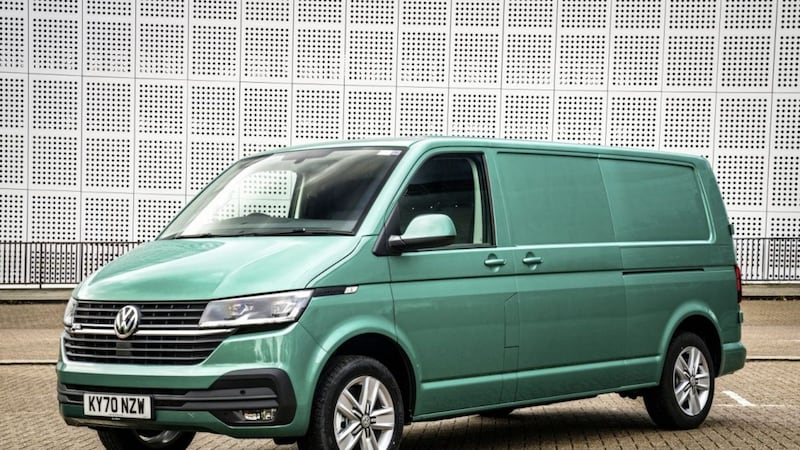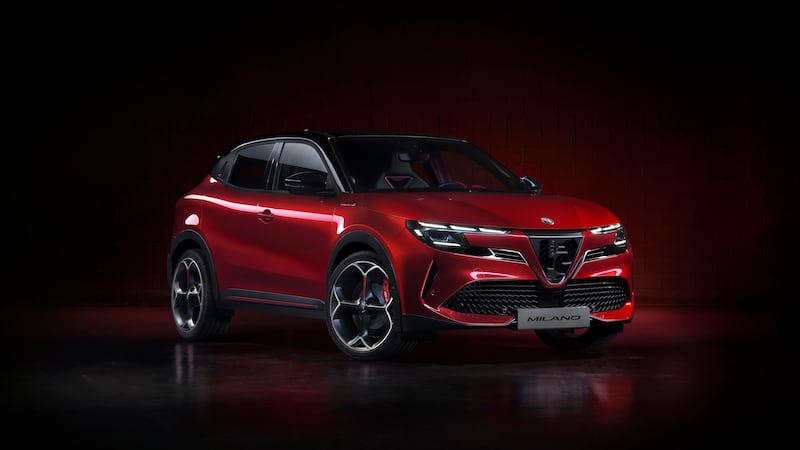ALONG with facemasks, hand sanitiser and marvelling at how many hours some people could spend watching Netflix, a feature of the pandemic has been the growth in the numbers of delivery vans whizzing from door to door, writes William Scholes.
These vehicles often have predictable 'runs' and cover relatively short distances before returning to base to be filled up with their next load.
As well as their usage patterns, the cargo - typically low in weight - that these vans are generally tasked to carry makes them ideal candidates to benefit from electric power. Little wonder that the biggest online retailer of them all has heavily invested in a fleet of electric vans in Belfast.
A plethora of van-makers are kitting out their vehicles to meet the burgeoning demand for zero emission 'last mile' delivery duties.
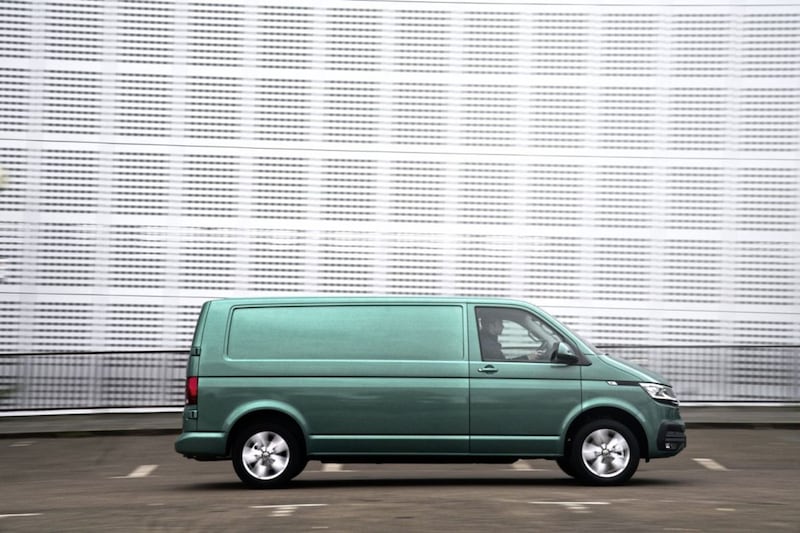
As with their passenger car counterparts, there are umpteen variations in terms of range and performance, as well as payload.
Vauxhall, Peugeot and Citroen have strong offerings, as do Mercedes-Benz and Renault.
Also in the fray is Volkswagen, though its offering, based on the highly effective Transporter, is a co-production with a German company called ABT.
A fully-fledged factory effort will arrive in due course - it will be based on the funky upcoming ID Buzz minivan - but the VW ABT e-Transporter still has much to commend it.
ABT has been around since 1896 but more recently has built a reputation as a tuner of VW and Audi cars.
Latterly it has moved into the electric world in a major way; it competes in Formula E, and won the championship's manufacturers' title with Audi in 2018.
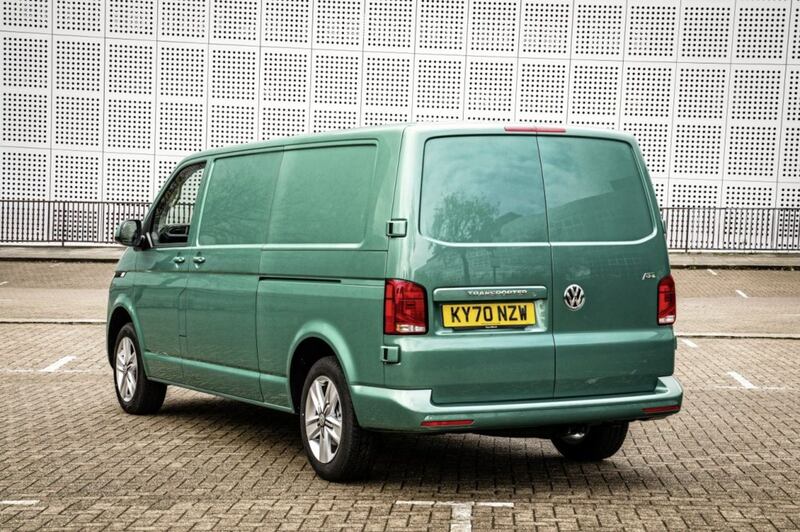
The hardware in the e-Transporter is a little more humdrum than that found in the single-seat racers competing in the Formula E series.
ABT has installed a 108bhp electric motor with 148lb ft of torque where the diesel engine used to live, and plumbed a 37.3kWh battery into the floor behind the front axle.
That's a relatively small battery compared to most electric passenger cars but it's a neatly packaged solution in the e-Transporter, with the bonus of not interfering at all with the van's loadspace; the floor height and internal dimensions remain the same.
A 108bhp electric motor with 148lb ft of torque has been installed where the diesel engine used to live, and a 37.3kWh battery plumbed into the floor behind the front axle. The e-Transporter has a claimed range of up to 82 miles
Almost all electric vehicles use a single-speed transmission, something that is made possible by the characteristics of an electric motor compared to an internal combustion engine.
However, VW and ABT have taken the unusual approach of fitting the e-Transporter with a double-clutch automatic gearbox.
This has been set up in such a way that when 'drive' is selected, the motor delivers 75 per cent of its power to help eek out range, with the gearbox's 'kickdown' function providing access to 100 per cent power and torque.
The net effect is that the e-Transporter has a claimed range of up to 82 miles. Don't expect neck-snapping EV performance either; top speed is limited to 56mph. Tantalisingly, VW still quotes a 0-62mph time of a leisurely 17.4 seconds...
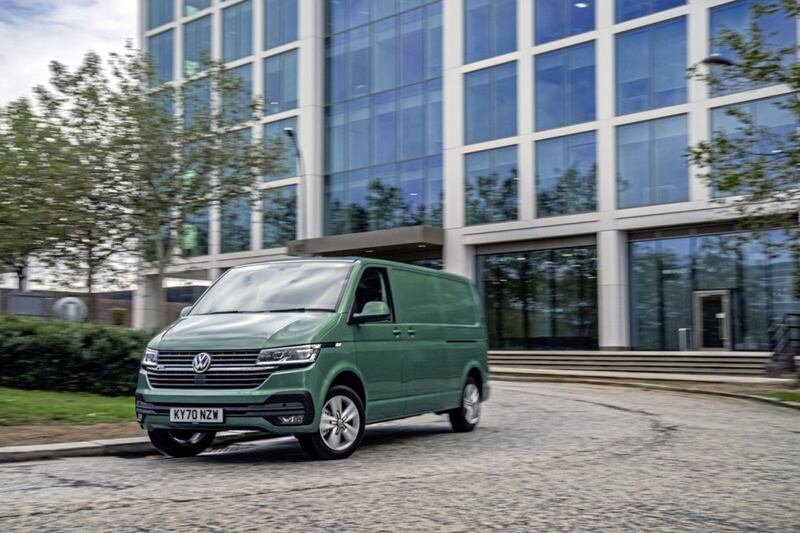
However, for the cut-and-thrust stop-start duties the e-Transporter is designed for, that will be just fine for many operators.
The van supports DC charging at up to 50kW but relying on the patchy and hard-pressed public network may not be conducive to smooth business operations. Nonetheless, VW says the van can achieve an 80 per cent charge in around 45 minutes.
A more likely scenario is that a 7.2kW AC wallbox will be used to re-juice the e-Transporter; that can fully charge the battery in around five-and-a-half hours.
The e-Transporter is based on VW's longer wheelbase offered in panel van and 'kombi' crew-cab forms, each with the same load volume as their diesel siblings - 6.7 cubic metres and 4.4 cubic metres respectively.
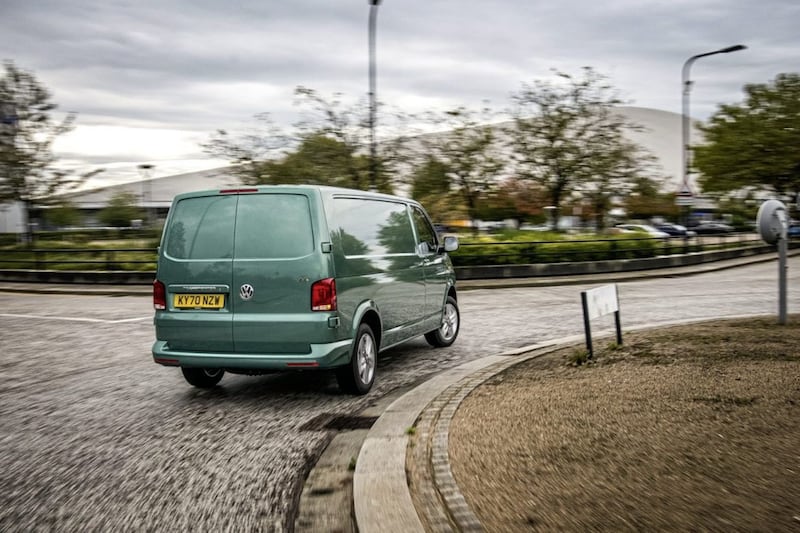
Payloads are down on the diesel, being rated at 996kg for the van and 900kg for the kombi. It can tow a 750kg braked trailer.
There are no dramatic changes to the driving environment compared to the diesel version. There is a new instrument cluster with a traditional speedometer on the right-hand side with a smaller charge level dial inside. On the left is a power display that shows the power flow to and from the battery.
Two trim levels are offered - standard and 'advance'. The standard e-Transporter is well kitted out, with features including 'app connect', LED interior lighting, a leather trimmed multi-function steering wheel, climatic air conditioning, heated driver and front passenger seats and rear parking sensors.
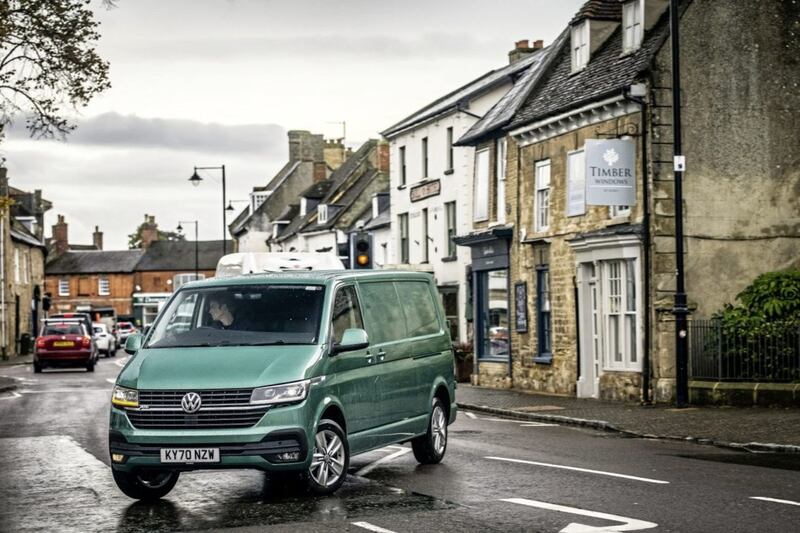
Advance adds some mainly cosmetic upgrades, including offering 17-inch alloy wheels, body coloured bumpers, wing mirrors and door handles and electrically folding door mirrors. It also gets LED headlights.
And, as with the rest of the Transporter range, a wide selection of options - from different door layouts to metallic paint - are available.
The van has a steel bulkhead behind the cab and comes with a single sliding side door and twin doors at the back.
The kombi, which can carry up to six people, gets a window in its sliding side door and another in the fixed panel opposite.
The e-Transporter is offered in panel van and 'kombi' crew-cab forms, each with the same load volume as their diesel siblings - 6.7 cubic metres and 4.4 cubic metres respectively
Prices stretch from £42,060 to £49,985, ex-VAT. However, VW promises "significantly lower servicing costs".
"As electric vehicles have fewer moving parts when compared to conventional diesel vehicles, the number of service items and workshop hours are both reduced," it says.
"Volkswagen Commercial Vehicles estimates that electric vans cost on average 30 percent less to service. Over the life-span of the vehicle, this can deliver significant cost savings for users."
The ABT e-Transporter has an annual service schedule - or 24,900 miles - with an extended inspection after 36 months (or 74,500 miles). Following that, an extended inspection is required every two years.
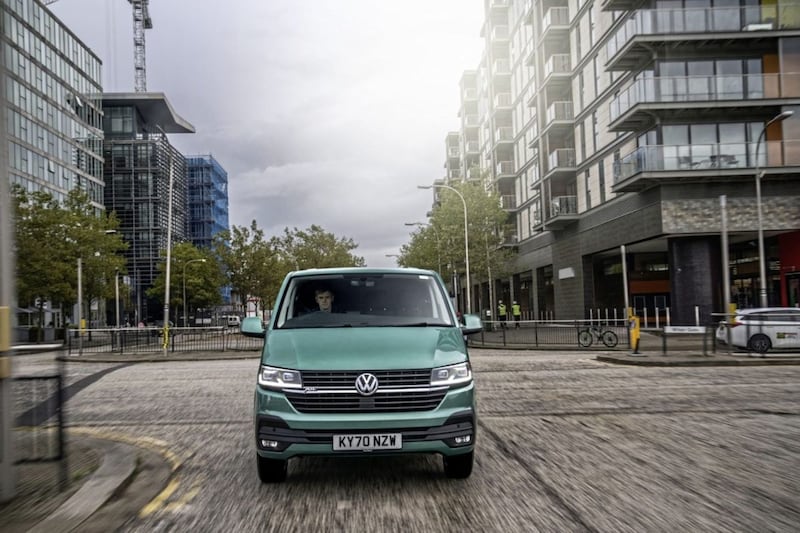
The battery pack comes with an eight-year/100,000-mile warranty, and VW says that should the battery capacity fall below 70 per cent or develop a fault it will be replaced.
The rest of the vehicle is covered by the brand's standard three-year/100,000-mile warranty.
As with battery cars, at this point in time electric vans won't suit all operators. But those whose requirements and usage - including predictable runs with low weight, high volume loads - intersect with the strengths of vans like the VW ABT e-Transporter should seriously consider adding one to their fleet.
